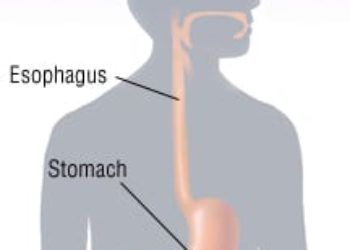Low and middle-income countries show greater post-operative mortality following cancer surgery
1. Low- and middle-income countries have a higher 30-day mortality in colorectal and gastric cancer surgeries compared with high-income countries.
2. Although the rate of peri-operative complications was similar across all country income levels, patients in low or lower-middle income countries were more likely to die from these events.
Evidence Rating Level: 2 (Good)
Study Rundown: As cancer prevalence increases in low- and middle-income countries (LMIC), oncological surgical care is increasingly utilized for treatment in these areas. Despite the increasing prevalence, however, there exists little information regarding the demographics of cancer in LMICs, or statistics involving surgical treatment of these cancers. Little is known about factors associated with morbidity and mortality in the surgical treatment of breast, colorectal and gastric cancer in LMICs. This multicenter, prospective cohort study sought to characterize the mortality and complication rates for surgical treatments of breast, colorectal and gastric cancers in low-, middle- and high-income countries. Overall, patients in upper-middle and LMICs underwent operation for their cancer at a more advanced stage. When adjusted for patient and disease factors relative to hospital and country of treatment, 30-day mortality was greater for gastric and colorectal cancers, but not breast cancer, in low- and lower-middle income countries compared to high-income countries. Complication rates were similar across all country income levels. However, a higher percentage of patients who sustained a major perioperative complication that lead to death was found in low- and lower-middle-income countries versus high-income countries. In terms of this study’s strength, this was a well-powered study with a prospective design, that collected data from a wide range of hospitals across the world. An important limitation, however, was only including 30-day postoperative mortality, and not a longer period of time. This is especially important to acknowledge given the longitudinal and chronic nature of most cancers.
Click to read the study in The Lancet
Relevant Reading: Global cancer statistics 2018: GLOBOCAN estimates of incidence and mortality worldwide for 36 cancers in 185 countries
In-Depth [prospective cohort]: This international, multicenter, prospective cohort study included a total of 15,958 patients in their analysis across 420 hospitals in 82 countries around the world. All patients were adults undergoing their first surgery for either primary breast, colorectal or gastric cancer. The primary outcome measures were 30-day mortality and 30-day major complication rate (including death). Secondary outcomes included rates of any complications at 30 days. Overall, 9106 (57.1%) of patients were from high-income, 2721 (17.0%) from middle-income, and 4131 (25.9%) from low- or lower-income countries. About half of the patients had surgery for breast cancer (52.7%), over a third for colorectal cancer (38.9%) and 8.4% had gastric cancer surgery.
After adjusting for patient and disease factors, as well as hospital and country of treatment, gastric cancer had a higher 30-day mortality rate in low- or lower-middle-income countries versus high-income countries (adjusted odds ratio [aOR] =3.72, 95% confidence interval [CI] 1.79-8.15). Colorectal cancer saw a higher 30-day mortality rate in upper-middle (aOR = 2.06, 95% CI 1.11-3.83) and low- or lower-middle-income countries versus high-income (aOR = 4.59, 95% CI 2.39-8.80). No difference in mortality was seen in breast cancer surgery. While the rate of major complications was similar across all groups, patients in upper-middle-income and LMICs were more likely to die following a major perioperative complication versus high-income countries (aOR = 3.89, 95% CI 2.08-7.29 and aOR = 6.15, 95% CI 3.26-11.59, respectively). Mortality following major complication was associated with the absence of postoperative care in LMICs (adjusted OR=1.19, 95%CI 1.01-1.42) and upper-middle-income groups (adjusted OR=1.19, 95% CI 1.01-1.42).
Image: PD
©2020 2 Minute Medicine, Inc. All rights reserved. No works may be reproduced without expressed written consent from 2 Minute Medicine, Inc. Inquire about licensing here. No article should be construed as medical advice and is not intended as such by the authors or by 2 Minute Medicine, Inc.







